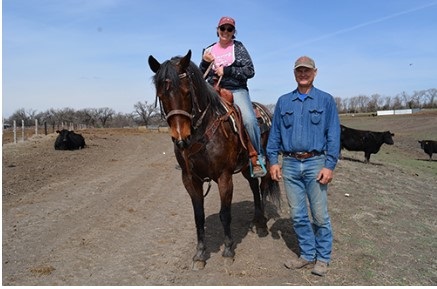In an appeal filed Friday, Attorney General Knudsen, who is the state’s chief legal officer, calls on the federal appeals board to overturn the BLM’s July 28, 2022 Notice of Final Decision authorizing American Prairie Reserve (APR) a general permit to graze in several allotments in northeastern Montana. The final decision, Knudsen says, violates several federal laws: the Taylor Grazing Act, the Federal Land Policy and Management Act, the Public Rangelands Improvement Act, the National Environmental Policy Act, and the Administrative Procedures Act.
“The BLM’s final decision granting a general use permit to graze bison is a direct attack on rural communities—attacks that have become a hallmark of the Biden Administration. The BLM has bent over backward to circumvent the law and approve APR’s plan to turn hundreds of thousands of acres of productive ranch land into a nature preserve for the wealthy,” Attorney General Knudsen said. “From shutting out Montana ranchers during the comment period, proposing to copy and paste directly from APR’s website, and ignoring federal law and its own regulations, it’s clear Biden’s BLM intended to rubber stamp this proposal from the start— no matter the impact on and opposition from local communities. The appeals board should step in, set aside the decision, and force the agency to follow the law.”
The APR submitted its proposal to BLM in 2019 that the Attorney General’s office says would fundamentally alter the way the bureau manages federal grazing allotments, transitioning from livestock to bison (what it calls “domestic indigenous livestock”) and requests changes to authorized seasons of use and interior and exterior fencing. Despite the changes and long-standing local opposition, the BLM hosted a single virtual meeting to receive feedback on the proposal before it issued its final decision: “[A] near perfect duplication of APR’s 2019 proposal” that “ignored the numerous concerns and legal deficiencies raised by commenters and protesters.”
“BLM’s final decision ignores what makes Montana’s rural communities unique. The final decision unlawfully prioritizes non-production conservation herds over livestock production and Montana’s ranching communities,” the motion states. “American Prairie Reserve’s change of use application follows directly from its mission to take land out of livestock production and ‘reestablish bison as a wildlife species.’”
By creating a new “indigenous livestock” categorization for bison and granting a general grazing permit rather than the required special grazing permit, BLM is attempting to employ an end-around to the statutory framework of the Taylor Grazing Act.
“BLM only has authority to issue general grazing permits for cattle, sheep, horses, burros, and goats—animals that have historically been associated with farms and that contribute to the wealth of the community,” the brief states. “APR’s non-production bison herd differs substantially from cattle operations. APR’s non-commercial conservation operations differ even from commercial bison operations.”
For similar reasons, the decision also violates the Federal Land Policy and Management Act and the Public Range Improvement Act.
The BLM’s flawed methodology in reaching its decision does not comport with the Administrative Procedures Act, which requires the agency’s action to be based in “reasoned decision making” and follow a process that is “logical and rational.”
BLM ignored commenters who raised commonsense economic issues, inexplicably concluding that shifting from cattle production, in which ranchers circulate money within their communities, to conservation will result in increased economic activity despite evidence otherwise. In 2020, APR, “claimed a mere $25,292 in ‘visitation income’” across all its properties and the number of hunting days decreased 39% between 2017 and 2022 (from 4418 to 2697). By contrast, Philips County farm employment is five times higher than the state average and cattle production doubles the output of crop production.
The BLM further failed to consider the harms associated with a larger conservation herd in the area, which is more likely so spread brucellosis, a devastating disease for production operations and of which the U.S. Department of Agriculture notes that free-ranging bison are major vector point in Montana.
By drafting the environmental assessment required by NEPA using language that appears nowhere in the applicable regulations, proposing alternatives that violate federal law, and using inappropriate methodology to analyze the impact of the proposed decision, the decision violates NEPA.
“Based on this flawed methodology, BLM underestimated the impact APR’s project will have on the local economy and surrounding communities. The agency, therefore, improperly concluded that the grazing decision would not have a significant economic impact. BLM fell short of its statutory obligations under NEPA,” the brief states.












